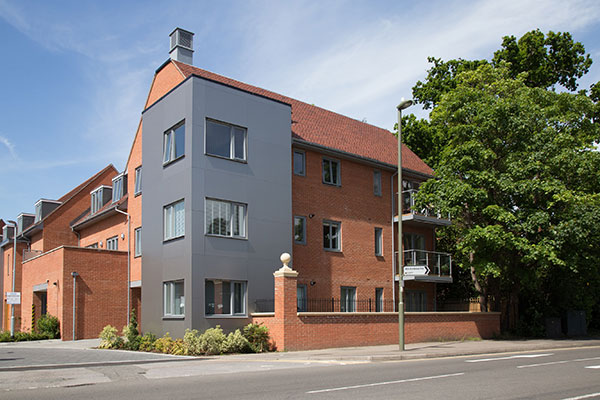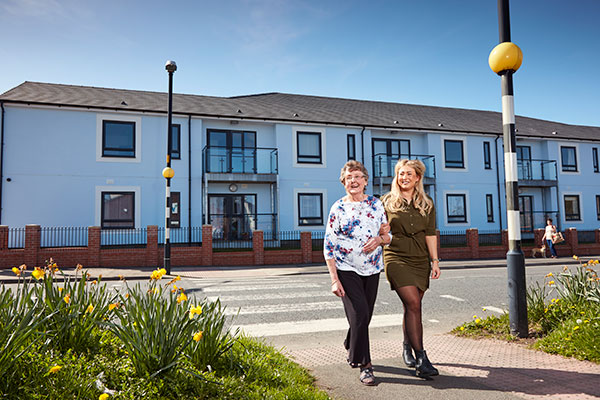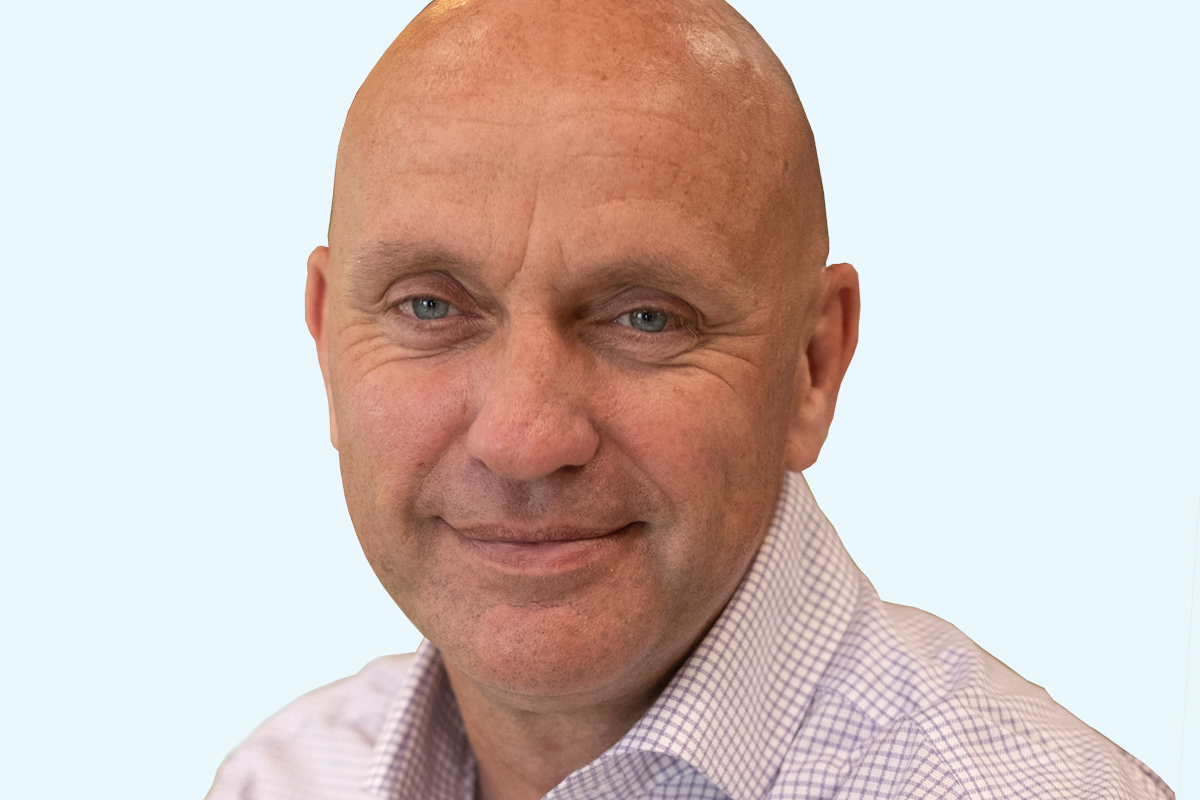Health and housing in practice
Three housing associations on how they are building a stronger link between health and housing
Article written in association with

Look Ahead
Reintegrating ex-offenders
Challenge: Better support mechanisms needed for ex-offenders with mental health issues
Solution: Support service launched to help reintegrate them into the community
Outcome: Service plays vital role in forensic mental health pathway in Tower Hamlets
Public safety is key to the service, says Irmani Smallwood, director of business development and innovation at Look Ahead, as she describes how the organisation’s Tabard Forensic Service offers support to ex-offenders resettling within their local community.
Tabard Forensic Service is a first for Look Ahead, which specialises in delivering services related to mental health, learning disabilities, homelessness and young people across the South East of England. And it is one of a handful of services countrywide to offer community-based support to male ex-offenders aged 18 to 74, who suffer from forensic psychiatric problems that directly lead to serious offending.
On arrival at the service in Tower Hamlets, east London, a client has no access to the wider community, says Ms Smallwood as she explains the two-year ‘stepdown’ care model. If they respond to help, they move into accommodation with their own front door to the street. At the end of their residency, clients will be encouraged to find housing in the community.
East London NHS Foundation Trust and Tower Hamlets Council first identified the need for this kind of service in 2013. The care pathways then were fragmented, costly and meant clients were being treated in secure units or housed outside of the area, which was not conducive to their recovery.
After winning the tender to deliver the service in 2015, Tabard Forensic Service now offers a two-year package of care in conjunction with the psychiatric services, local police and community agencies to ensure these conditions are managed and medicated in a supportive environment that eases a client’s transition back into everyday life.
The service is approaching its second anniversary and has received a glowing endorsement from commissioners, who Ms Smallwood says took a brave step in supporting the project.
An external evaluation from HACT, which has assessed the first 18 months of the project, was also full of praise. In its report, it said that Tabard Forensic Service not only provides a cost-effective alternative to out-of-area residential, or hospital care, but has become a vital part of the wider forensic mental health pathway in Tower Hamlets. It also provides an effective ‘step down’ from secure care to independent living in both service and accommodation.
Rachael Saunders, Tower Hamlets deputy mayor and cabinet member for health and adult services, says: “We are particularly pleased that HACT recognises the expertise, ideas and partnerships, which are vital to customer well-being and recovery at Tabard Forensic Service.”
Thames Valley Housing Association
Affordable key worker housing
Challenge: Growing cost of NHS key worker living
Solution: Frimley Health NHS Trust commissions development of 86 apartments
Outcome: Key workers can access affordable housing
Eighty-six key workers in Surrey can now access ‘truly’ affordable housing following a groundbreaking alliance between Thames Valley Housing Association (TVHA) and Frimley Health NHS Foundation Trust, in which the trust took its first steps as a property developer.
And the employer-led project has not only transformed lives but turned an unproductive piece of land into a sustainable asset, says Kush Rawal, commercial director at TVHA, who has overseen the development which was completed in March 2017.
In the current climate, the land might easily have been sold off to the highest bidder, says Mr Rawal. Instead, it hosts 10 one-bed apartments and 76 cluster flats with shared social and utility spaces. Rental revenues from the properties are invested back into the NHS.
Mr Rawal says affordability is a priority in the health sector, which struggles to recruit and retain staff.
“A key worker outside of London will earn around £20,000 a year. Private renting is expensive and often offers a poor quality of life. Frimley Health can now offer an alternative. That’s a big plus for any employer seeking to support their staff.”
The trust won planning permission in 2013 to provide key worker accommodation and 34 other dwellings for private sale, which would help fund the social housing. Bids were invited in March 2014 and TVHA was selected, with contractor Bugler Homes chosen as the preferred bidder later that year.
Under the development model, the freehold on the land for the affordable housing passed to TVHA, which will manage the properties under a 35-year nomination agreement.
While the trust retains first priority in nominating residents, other key workers will be considered. The deal carries a no occupancy/void guarantee, while rent rises are capped at between 3% and 5% to fall in line with inflation.
“The key to this scheme has been in the model. Right from the development process, the collaboration between the trust and ourselves has meant it delivers on so many levels: affordability, sustainability and quality.
“It is a great example of employer-led housing,” says Mr Rawal.
Housing solutions agency HACT has since worked with TVHA to help promote the work it has done with Frimley Health to other NHS trusts. HACT is also working with national health bodies to drive forward relationships with housing associations developing estates strategies that address workers’ accommodation.
Home Group
Improved patient turnover
Challenge: Delayed discharges using up valuable NHS resources
Solution: Pilot launched to speed up discharges
Outcome: Has helped 950 patients leave hospital sooner
The concept behind the Surrey ‘Home from Hospital’ scheme is simple, says Rachael Byrne, executive director of care and support at Home Group, which has 55,000 homes nationally and works with more than 26,000 vulnerable people through supported housing, justice and health services.
“Not everyone has friends or family to help them settle in safely at home after a stint in hospital, and without that support a patient can’t be discharged,” she says, spelling out the dilemma faced by hospital administrators countrywide. “So that’s where we come in.”
Eight full-time care organisers, aided by volunteers, offer a six-week package of home support and work across in-patient and accident and emergency wards assessing the needs of patients whose discharge has been delayed due to an absence of a capable carer.
“Social landlords are geared up for this kind of role. It’s a win-win situation.”
The Home Group team members do not offer hands-on physical care, but act as patient advocates, service providers, social groups and a patient’s extended family to help build a support network that not only eases their return home but seeks to guard against re-admittance. And the scheme is proving as efficient as it is simple, adds Ms Byrne.
HACT has been actively involved in helping Home Group develop a relationship with health providers, as well as drive take-up of the pilot scheme.
Commissioned by Surrey County Council and five clinical commissioning groups – Surrey Heath, North East Hampshire and Farnham, North West Surrey, Surrey Downs, and Guildford and Waverley – the pilot scheme received funding of £200,000. Since launching in October 2016, the Surrey Home from Hospital scheme has helped around 950 patients, which Home Group says equates to a saving in hospital time of 27,000 days.
“Up to 90% of our clients are frail and older,” says Ms Byrne. “They are often lonely and isolated. What we do is put the practical stuff in place – make sure the shopping is being done, that they are aware of transport services such as dial-a-ride, and in some cases liaise with online services that can deliver.”
For Ms Byrne the pilot is part of a wider emerging relationship between health and housing services, where social landlords have a clear offer, and where the results speak for themselves.
“Social landlords are geared up for this kind of role. In many cases we would be delivering this kind of care to our own residents anyway, but here we are extending to the wider population with great results. It’s a win-win situation.”











